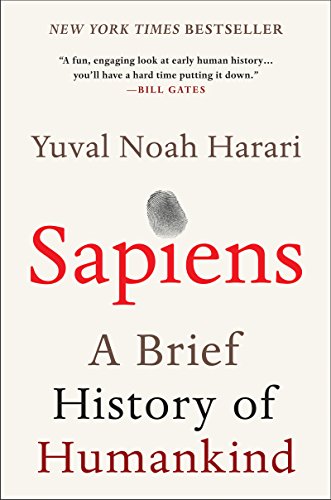

This article is an excerpt from the Shortform summary of "Sapiens: A Brief History of Humankind" by Yuval Noah Harari. Shortform has the world's best summaries of books you should be reading.
Like this article? Sign up for a free trial here .
What were the causes of the Scientific Revolution? How did the new acceptance of ignorance become the root of our quest for knowledge?
The Scientific Revolution was caused by a shift in the way people viewed the world and its future. These paradigm shifts included the willingness to accept our own ignorance, an emphasis on math and observation, the desire for imperial dominance, and the new belief in progress.
We’ll cover how these causes of the Scientific Revolution changed the world, formed a web with the economy, politics, and religion, and sparked the movement toward modernity.
What Caused the Scientific Revolution? Knowing We Don’t Know
In the last 500 years, we’ve seen unprecedented scientific and technological growth, so much so that a time traveler from 1500 would recognize very little of our world. For instance, since 1500, the world population has grown from 500 million Sapiens to 7 billion. Every word and number in every book in every medieval library could be easily stored on a modern computer. Further, we’ve built skyscrapers, circumnavigated the earth, and landed on the moon. We’ve discovered the world of bacteria, can now cure most diseases caused by it, and even engineer bacteria for use in medicines.
All of these advances were made possible by the Scientific Revolution.
Causes of the Scientific Revolution
In many ways, the Scientific Revolution was the result of a shift in the way Sapiens viewed the world and its future. We post-Scientific Revolution Sapiens understand the world differently than our ancestors:
1. We are willing to acknowledge our ignorance: Today, we assume there are gaps in our knowledge, and we even question what we think we know. As we’ll see below, this wasn’t the norm before the Scientific Revolution.
2. We emphasize observation and mathematics: Rather than getting our knowledge from divine books, we use our senses and the technologies available to us to make observations. We then use mathematics to connect these observations and make them into a coherent theory.
3. We strive for new powers: Knowledge is only valuable in its use to us. We don’t develop theories for the sake of knowing more. We use theories to gain new powers, new technologies in particular.
4. We believe in progress, whereas our ancestors believed that the golden age was behind them.
5. The discovery of America, which opened a new world for Europeans.
Let’s look at the history of each of these features of the scientific mind and see how they caused of the Scientific Revolution.
Cause #1: Ignorance
The first cause of the Scientific Revolution was the acceptance of ignorance.
Man’s acknowledgment of his own ignorance was the breakthrough that launched the Scientific Revolution. This awareness of ignorance leads to experiments that take us closer to knowledge. For instance, today, biologists readily admit that they don’t know how our brains produce consciousness and physicists acknowledge that they don’t know what caused the Big Bang. The acknowledgment of these gaps motivates researchers to fill them.
Before the Scientific Revolution, Sapiens got the majority of their knowledge from their religions. The traditions of Christianity, Islam, and Buddhism, among others, claimed that anything worth knowing was already known. You could find these revelations in the holy texts. Any information missing from these texts was unimportant—If God wanted us to know how spiders weave webs, He would have put it in the Bible.
In contrast, even today’s most established scientific theories would still be debatable if new evidence emerged that contradicted them. Generally, we’re far more open to questioning what we think we know.
Cause #2: Observation and Mathematics
The second cause of the Scientific Revolution was the focus on observation and math.
Before around 1500, collecting scientific observations about the world was unnecessary because all of the world’s important knowledge was already contained in the holy texts. The holy texts used stories to link various observations together and create a coherent theory.
Today, rather than stories, we use math to link observations. For example, Newton’s three equations, made public in 1687, aim to explain and predict the motion of everything in the universe.
There are benefits to using math. Stories can’t reliably make predictions about the future—they can only tell you something about the past. But mathematical equations are extraordinary in their ability to predict. For instance, if you’re trying to set up a life-insurance fund for the families of deceased clergymen in Scotland, but you don’t know how much each clergyman should contribute in his lifetime, equations can tell you with surprising accuracy how many ministers would die every year, how many family members they’d leave behind, and how many years widows would outlive their husbands. The use of math to link observations allowed previous knowledge to be useful in predicting the outcomes of new situations.
Cause #3: New Powers
The third cause of the Scientific Revolution was the desire for new technological and imperial powers.
Even though most of us don’t understand modern scientific fields, science is respected because of the almost magical powers it gives us. Presidents and officers don’t really care how nuclear physics works, but they certainly understand the uses of a nuclear bomb.
The most sought-after power of the modern age is the power of technology. The relationship between science and technology is recent, even though now we tend to confuse and conflate them, thinking that new technology only comes from scientific research and that the purpose of scientific research is to develop new technology.
Before the 19th century, power came from organizational improvements rather than developments in technology. Rulers and commanders didn’t bother to finance research. They didn’t think technology could be more helpful than strategy. For example, the army of the Roman Empire had no technological advantage over Carthage’s army or the army of the Seleucid Empire. But the Roman army was organized, disciplined, and large. It won many wars because of these qualities.
The history of gunpowder sheds light on how little technology was valued. Gunpowder was an accidental discovery, made by alchemists trying to develop the elixir of life. The Chinese didn’t immediately recognize the military use of gunpowder because they didn’t think that new military technology was going to be what won wars for them. They used gunpowder mainly for fireworks. It took 600 years for Sapiens to recognize how useful cannons could be. There had been so little technological progress for so long that our ancestors dismissed advances as amusing toys.
Judging Findings by Their Usefulness
In the late 16th century, Francis Bacon made the connection between scientific research and the production of technology. Bacon saw that assessing how “true” knowledge is isn’t a good yardstick because we can’t assume that any theory is 100% correct. A better yardstick is how useful that knowledge is. This would eventually contribute to the causes of the Scientific Revolution.
This relationship between science and technology didn’t become strong until the 19th century. But from that point on, it accelerated quickly. By WWI, governments depended on scientists to develop advanced aircraft, efficient machine guns, submarines, and poison gases. During WWII, the Germans held on for so long because they believed their scientists were on the verge of developing the V-2 rocket and jet-powered aircraft, weapons that may have turned the tide of the war. Meanwhile, Americans ended the war with a piece of new technology, the atomic bomb.
Our views on the value of technology have strayed so far from those of our ancestors that we now turn to technology to solve all our global conflicts. The US Department of Defense has invested research money into bionic spy-flies that stealthily track the movements of enemies and fMRI scanners that can read hateful thoughts.
Cause #4: The Ideal of Progress
The fourth cause of the Scientific Revolution was the belief that the world is getting better, not worse.
Before the Scientific Revolution, people didn’t believe in progress. They believed the golden age was behind them, and if the great prophets and saints of the past couldn’t solve the world’s problems, neither could they.
At best, they thought a messiah would come to earth and solve all its problems. To think that humans could solve these problems was hubris, and stories about Icarus and the Tower of Babel made it clear that humans shouldn’t overstep and aspire to godly powers.
But with the admission of ignorance came the possibility of discovery and progress. This was a foundational cause of the Scientific Revolution. When Benjamin Franklin flew a kite in a storm and discerned that lightning was an electrical current rather than the hammer of an angry god, he invented the lightning rod, effectively taking the power of lightning away from the gods. By Franklin’s time, this was no longer seen as hubris. This was the epitome of scientific research producing useful technology.
In the New Testament, Jesus says that “The poor you will always have with you” (Mark 14:7), and our ancestors truly believed that the problem of poverty would see no progress. But today, poverty is declining due to technological advances in agronomy and medicine and the relief efforts of private companies, government organizations, and NGOs. In some countries, people are far more likely to die of obesity than poverty.
The more scientific discoveries Sapiens made, the more they perceived progress. This motivated them to continue searching for discoveries, reinforcing the cycle. Empire was another cause of the Scientific Revolution.
Cause #5: Columbus’s Discovery of America
The discovery of this new continent jump-started the Scientific Revolution. It showed Europeans their ignorance about the world and demonstrated the occasional need to trust observations over Scripture. It also motivated Europeans to conquer these previously-unknown lands, and in order to do so, they needed to collect data on the geography, climate, plants, animals, and cultures of the Americas. They needed science to better prepare them to rule strangers. They established global empires and trade networks that brought isolated civilizations together. This was also when disparate cultures started to merge, forming a single worldwide society.
———End of Preview———

Like what you just read? Read the rest of the world's best summary of "Sapiens" at Shortform . Learn the book's critical concepts in 20 minutes or less .
Here's what you'll find in our full Sapiens summary :
- How Sapiens outlived and outlasted the 8+ other human-like species on Earth
- The 3 critical revolutions in human existence that led to our domination of the planet
- How much of what powers our world today is really just a shared mass delusion
- What the future of humanity might look like






